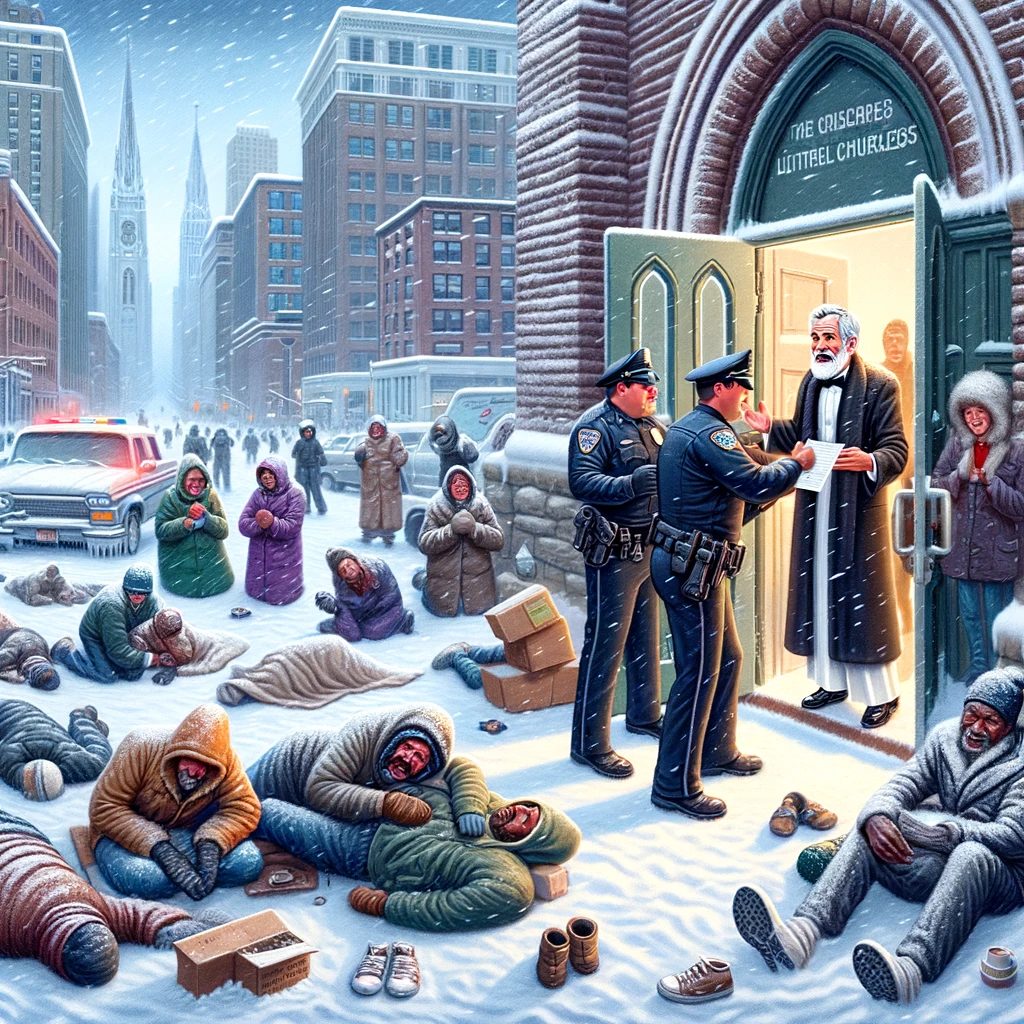Ohio Pastor Charged for Sheltering Homeless During Freezing Weather
- Summary Point 1: Pastor Chris Avell of Dad’s Place in Bryan, Ohio, faced legal charges for keeping his church open to shelter the homeless during extreme cold.
- Summary Point 2: Ohio law prohibits residential use in first-floor buildings in a business district, leading to the charges against Avell.
- Summary Point 3: The situation highlights the challenges and legal obstacles in providing shelter to the homeless during severe weather conditions.
In-depth Analysis:
In a twist that could be straight out of a Dickensian novel, Pastor Chris Avell from Bryan, Ohio, finds himself ensnared in a legal conundrum for performing an act of compassion. During the fierce grip of winter, as the Midwest battled extreme cold and snow, Avell kept the doors of Dad’s Place open to the homeless. This act, reminiscent of a parable of kindness, clashed with the harsh reality of zoning laws that prohibit residential use in first-floor buildings within a business district.
The pastor’s actions, driven by a moral compass pointing firmly towards helping those in need, highlights a systemic irony. While shelters are swamped and streets become icy purgatories for the unhoused, Avell’s attempt to provide a warm haven lands him in hot water with the law. It’s a modern-day tale of morality pitted against bureaucracy, raising poignant questions about societal responsibilities and legal frameworks.
In the backdrop of this narrative is a grim reality – a burgeoning unhoused population grappling with the unforgiving winter. The National Weather Service reported that around 45% of the U.S. population was under wind chill advisories for dangerous cold in mid-January. This chilling statistic underscores a dire need for shelter and warmth, magnifying the significance of Avell’s actions.
Avell’s case is not just an isolated incident but a mirror reflecting the broader struggle of addressing homelessness in America. The incident throws into sharp relief the conflict between legal statutes and the ethical imperative to assist the vulnerable. It’s a societal conundrum, akin to a moral Gordian knot, where the threads of law, compassion, and public policy entangle in complex ways.
This story also brings to the forefront the need for systemic solutions to homelessness, especially during harsh weather conditions. It questions the adequacy of existing infrastructure and policies in protecting the most vulnerable in society. The juxtaposition of a pastor facing charges for offering shelter against the backdrop of people freezing to death in the streets is a stark reminder of the gaps in our social safety net.
Conclusion:
The saga of Pastor Chris Avell serves as a poignant and somewhat paradoxical illustration of the complexities surrounding humanitarian efforts in the face of legal restrictions. It underscores a profound dilemma: how to reconcile the legalistic rigidity of zoning laws with the moral imperative to aid those in dire need. This incident is a clarion call for a reevaluation of policies and approaches towards homelessness, especially in the face of extreme weather conditions. It’s a narrative that challenges us to reflect on the essence of community, compassion, and the role of law in governing acts of human kindness. As the story of Pastor Avell unfolds, it stands as a testament to the ongoing struggle to balance legal boundaries with ethical responsibilities in the pursuit of societal welfare.
https://news.yahoo.com/folks-freeze-death-midwest-ohio-101252249.html










